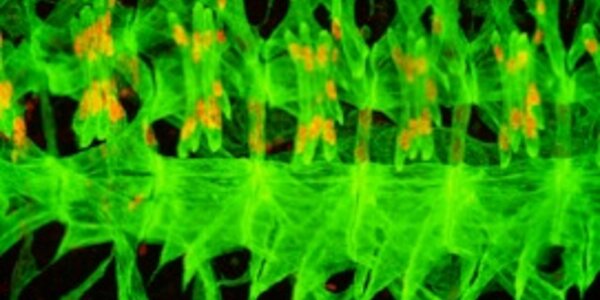MYC: Undruggable Cancer Regulator Can Halt Tumor Growth
It's a trick almost everyone knows: to open a locked door, slide a credit card over the latch.
Scientists at The Scripps Research Institute (TSRI) used a similar strategy when they attempted to disrupt the function of MYC, a cancer regulator thought to be "undruggable." The researchers found that a credit card-like molecule they developed somehow moves in and disrupts the critical interactions between MYC and its binding partner.
MYC is a transcriptional factor, meaning it controls gene expression. When MYC is overexpressed or amplified, the unregulated expression of genes involved in cell…


